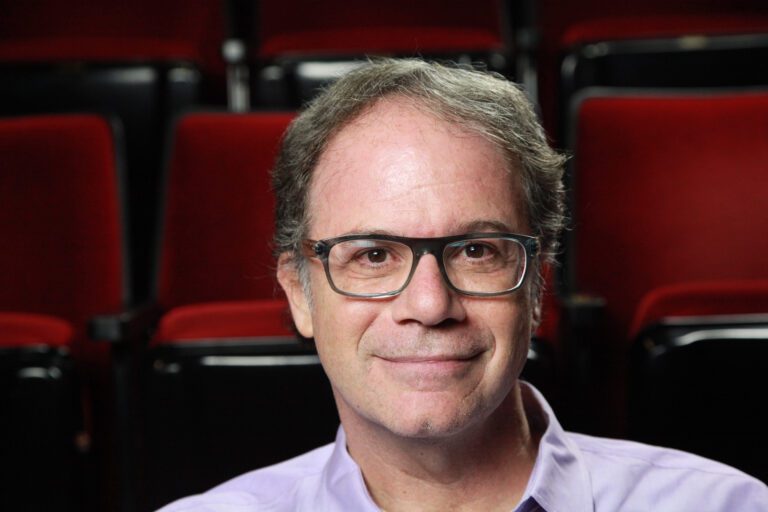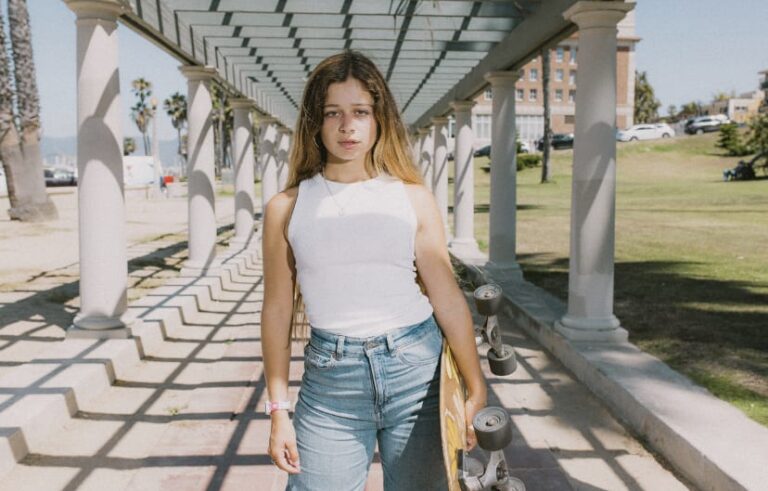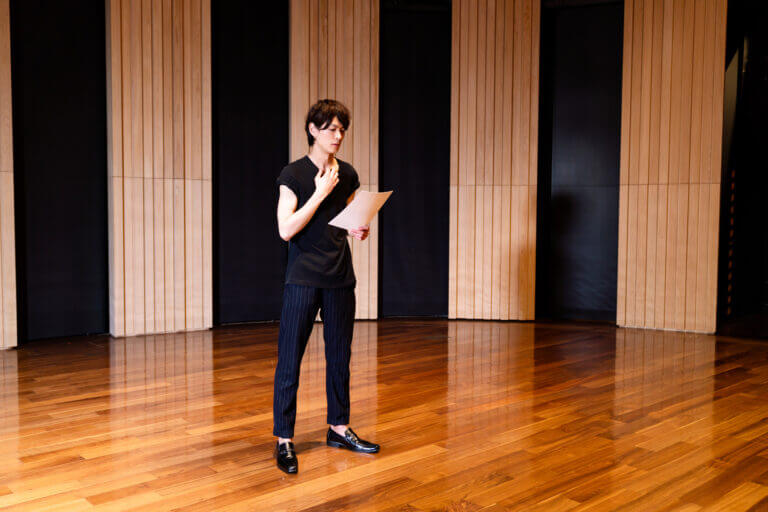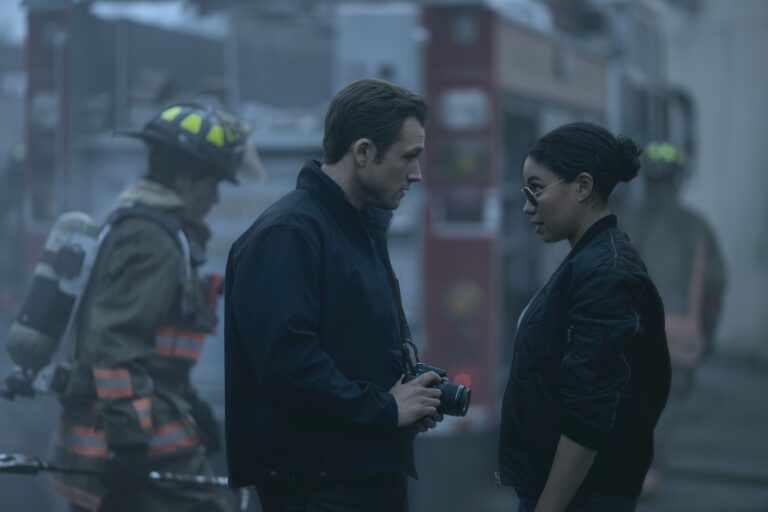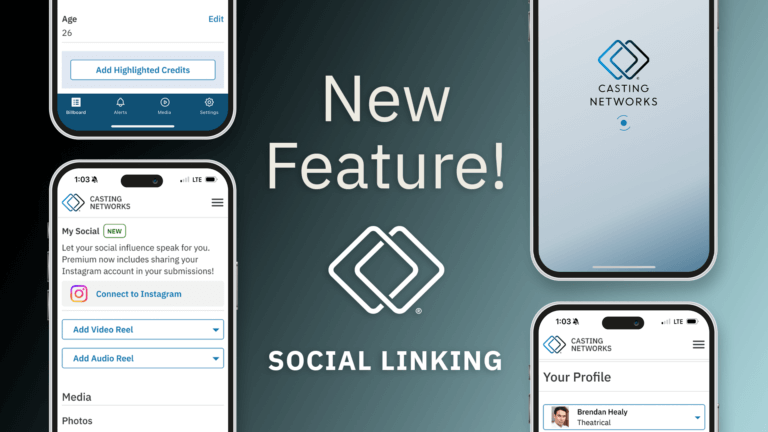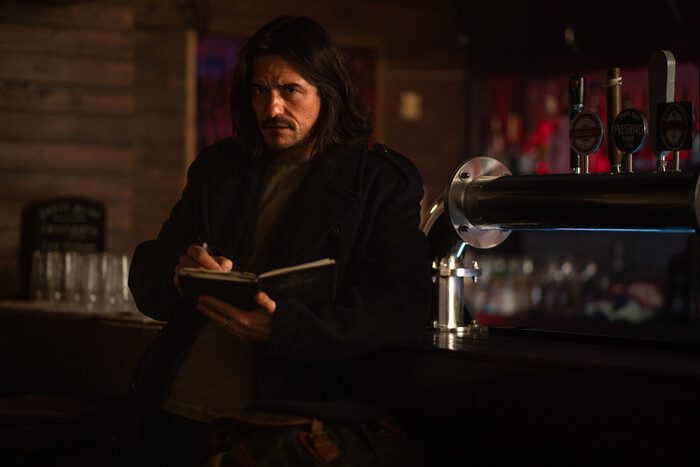Tim Blake Nelson shot to fame after appearing in the Coen Brothers’ Oh Brother, Where Art Thou? Since then, he’s starred in a plethora of memorable roles in films like Holes, Syriana and the HBO miniseries The Watchmen. Furthermore, he is an accomplished filmmaker and playwright who adapted two of his plays for the big screen, including Eye of God and The Grey Zone, both of which he also directed for the big screen.
Currently, Nelson stars in director Potsy Ponciroli’s indie Western Old Henry, playing the title role of a widowed farmer, who, with his son (Gavin Lewis), takes in an injured, mysterious traveler (Scott Haze) with a satchel of cash. Things take a turn when a group of horsemen — whose ringleader is played by Stephen Dorff — arrive claiming to be the law, looking for both the man and the money.
Nelson spoke to Casting Networks about the multi-hyphenate duties he had on Henry, his early days on the audition circuit, working with certain directors multiple times and being an actor who also directs.
Are there certain criteria that must be met for you to accept a role in a project?
I need to feel like the project, and the part, are irresistible. I need to feel like the filmmaker has real aesthetic ambitions that will make their movie unlike anyone else’s. I also want to feel like the producers are going to support the director’s vision. Then finally, I want to feel like I can come through for the director and give them what they want, and not fail them. If all that is at work, I’m probably going to do the movie — if they want me [laughs].
In addition to playing the lead role in Old Henry, you are also an executive producer. Does that mean you had a hand in casting as well?
Yes, but I say this with some trepidation because I don’t think it’s healthy for actors to be on set knowing that somebody approved their presence. It sets up a power imbalance that I don’t think is helpful. I think actors should feel like they’re scene partners, not that one is there because another one said, “Yeah, that person is okay with me.” The casting decisions were ultimately all Potsy’s. I gave my opinions, but they were his decisions.
What were some of the opinions you gave?
Scott Haze and I have done about ten movies together, and I suggested him to Potsy. They met and liked each other. With Gavin, I looked at tapes with Potsy. It was Potsy’s idea to cast Stephen Dorff. Then I talked with Stephen and was part of helping him decide to do the movie.
Did you know Stephen prior?
Stephen and I talked about working together for years. There was a pilot he did a long time ago for CBS that he wanted me to do with him, but I couldn’t do it. Stephen and I met back in the ’90s through [our mutual friend] David Arquette, and he was always really nice to me.
Interesting how that quality of Stephen being nice to you was something that stuck with you, even to this day. It was a memorable character trait for you.
Well, just speaking to the purpose of what your website (Casting Networks) offers, being a good citizen is incredibly important in continuing to get work.
Do you think that explains why you have managed to work multiple times with the same directors such as Joel and Ethan Coen (Brother, The Ballad of Buster Scruggs), Steven Spielberg (Minority Report, Lincoln) and Guillermo del Toro (the upcoming Nightmare Alley and Guillermo del Toro’s Cabinet of Curiosities)?
I can’t say it’s something I’m particularly conscious of. I’m always grateful when I get the call to work with someone again. I think a lot of it is understanding that sometimes you’re going to be foregrounded, and sometimes they want a little dash of you in the movie. For example, my first job with Guillermo was something he told me about a year before giving it to me. We were at an awards ceremony in Venice. He said, “I’ve written a role for you in my next movie.” I was delighted and really excited. A year later, he wrote to me and said, “I got the role for you, we’re offering it, can I send the script, and let’s meet.” We had this great meeting, he gave me the script in person, and then I read it.
And?
It was a tiny role. I thought, “Oh darn.” Because I’d built it up in my mind that I was going to have this wonderful role. He literally said: “I wrote a role for you.” I didn’t think it was just going to be one scene. But I did it and had a great time, and had the best possible attitude about it, which is that he put me in his movie at all! Then the next time he called, it was to play something substantially larger. I think that working repeatedly with directors is all about giving yourself over to how and why they need you and how you can be of help, rather than thinking about it in terms of what’s in it for me.
You mentioned watching audition tapes with Potsy for the role of your son in Old Henry, and eventually, you both found Gavin that way. You have directed both film and television. As an actor who is on the other side of the casting table sometimes, what advice would you give others knowing what you now know?
The baseline for an actor if you’re auditioning is to know the scene and play it well. Particularly now when it’s all about putting yourself on tape, which I think will pervade even after COVID. I’m involved in casting a movie right now and what’s incredibly comforting to me is the amount of work that everyone seems to put into auditioning. Ultimately, it’s about who’s right for the part from among those.
This means there are a lot of rejected actors for each role. How did you handle rejection when you were starting out, and what can others learn from that?
When you don’t get a role, it’s seldom because of a deficit of talent. It really is. I think if actors could understand that, they would audition with much more confidence. They would take it less personally when they give what they know is a wonderful audition but don’t get a call back. I spent a solid decade in the ’90s auditioning, auditioning, and auditioning, and being rejected, never getting a call back, never going to network for television shows. Occasionally, I’d be taking it personally because I knew that I’d presented something credible and worthy of everyone’s attention. But it was because I wasn’t right for the part. If I had understood that, I would have wasted a lot less emotional energy.
Oh Brother put you on the map. You and Joel Coen were friends, and he offered you the part. Did you know this film would be a big career break for you?
When he offered me the role, my initial response to Joel was one of fear — I didn’t want to disappoint him. I honestly had to give it a think before I said yes. Then my focus was on playing the part well in the context of this crazy movie they were making, which was a combination of a Preston Sturges film, with Homer, and American roots music, that had its own vocabulary that extended into the acting style. One day, when I was on set, John Turturro said to me, “Tim, their movies are always better as movies than they are on the page. And their scripts are always extraordinary, so you do the math. You’re a part of something incredibly special.” Only then did I realize the possible impact the movie was going to have on my life.
Were you basically “offer only” after that film?
Pretty much offer only. Sometimes a director will come along and say, “I’ve never seen you do this kind of part, and if you want me to consider you, then you’ve got to read.” I might say, “Okay, I’ll play ball and do that.” But sometimes I’ll say, “If what I’ve done so far in more than 80 movies doesn’t work for you, then you probably want somebody else. I probably won’t give you what you need.” There are no hard feelings. I respect the director’s process.
As a director, do you experience rejection when you offer a role to someone who turns it down?
Plenty of actors turned down my material! [laughs] I don’t take it personally. Except for the one time where there was one actor — I won’t name him — but it came back to me that he only wanted to work with a “handful of A-list directors, and Tim Blake Nelson just isn’t one of those.”
Oh my! How did you react to that?
It chapped me. I thought, “Really? He didn’t even read the script!” So that was the one time. The other times, I’m just disappointed for my movie. It’s not personal.
Did you vow to never cast that actor in anything you do, no matter what A-B-C-D-list you’re on?
Well, if the part’s right…I mean, I don’t want to sound like I’m moronically desperate, but it’s a long life. You’ve got to be forgiving.
Old Henry is playing in select theaters and available on premium VOD, and is distributed by Shout! Studios.
Looking to get your big break? Sign up or login to Casting Networks and land your next acting role today!
Related articles:
Meet the Actor: Martin Donovan
On the Verge: Sasha Knight in ‘Cowboys’
Meet the Actor: Tamara Bass







